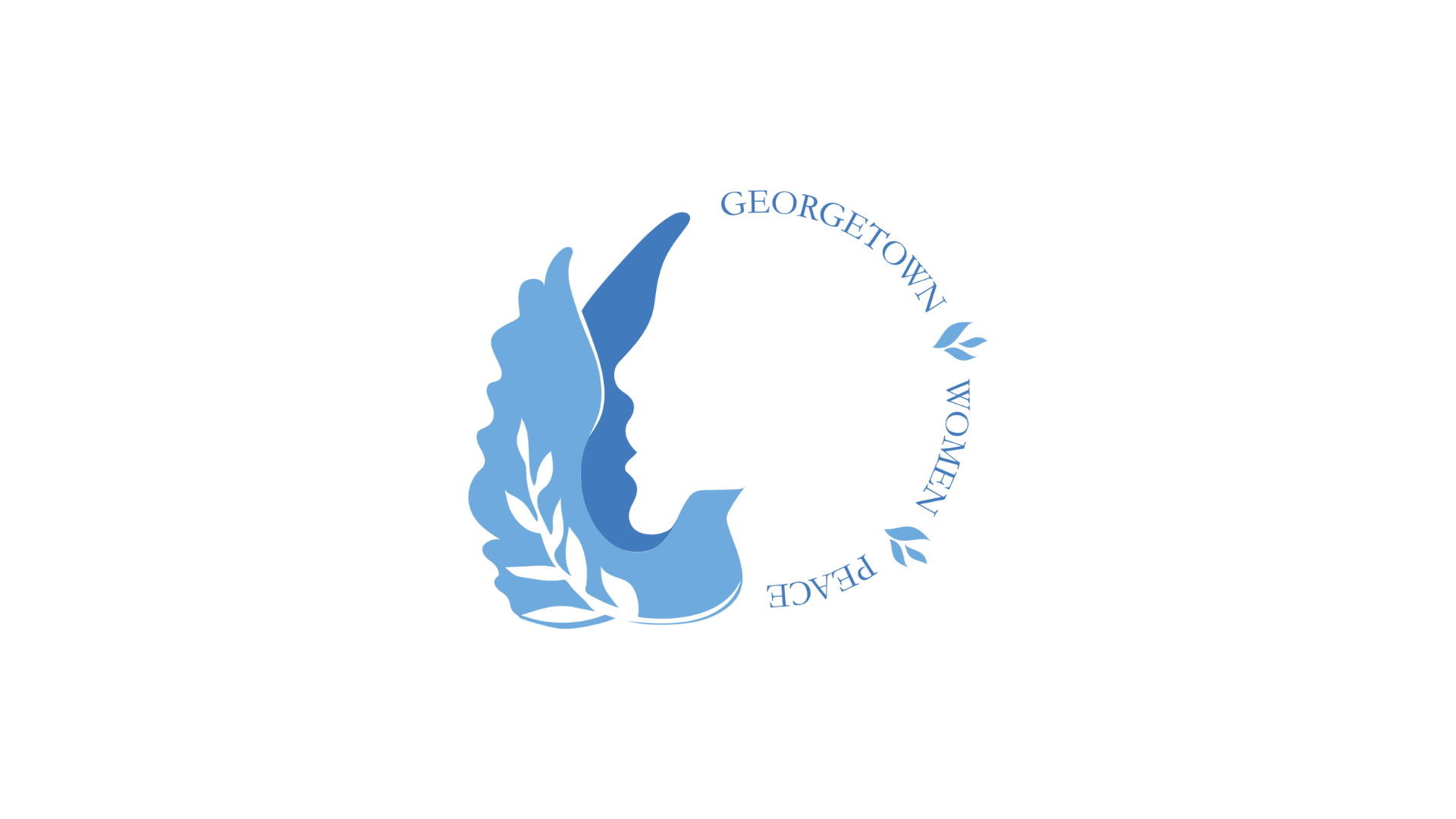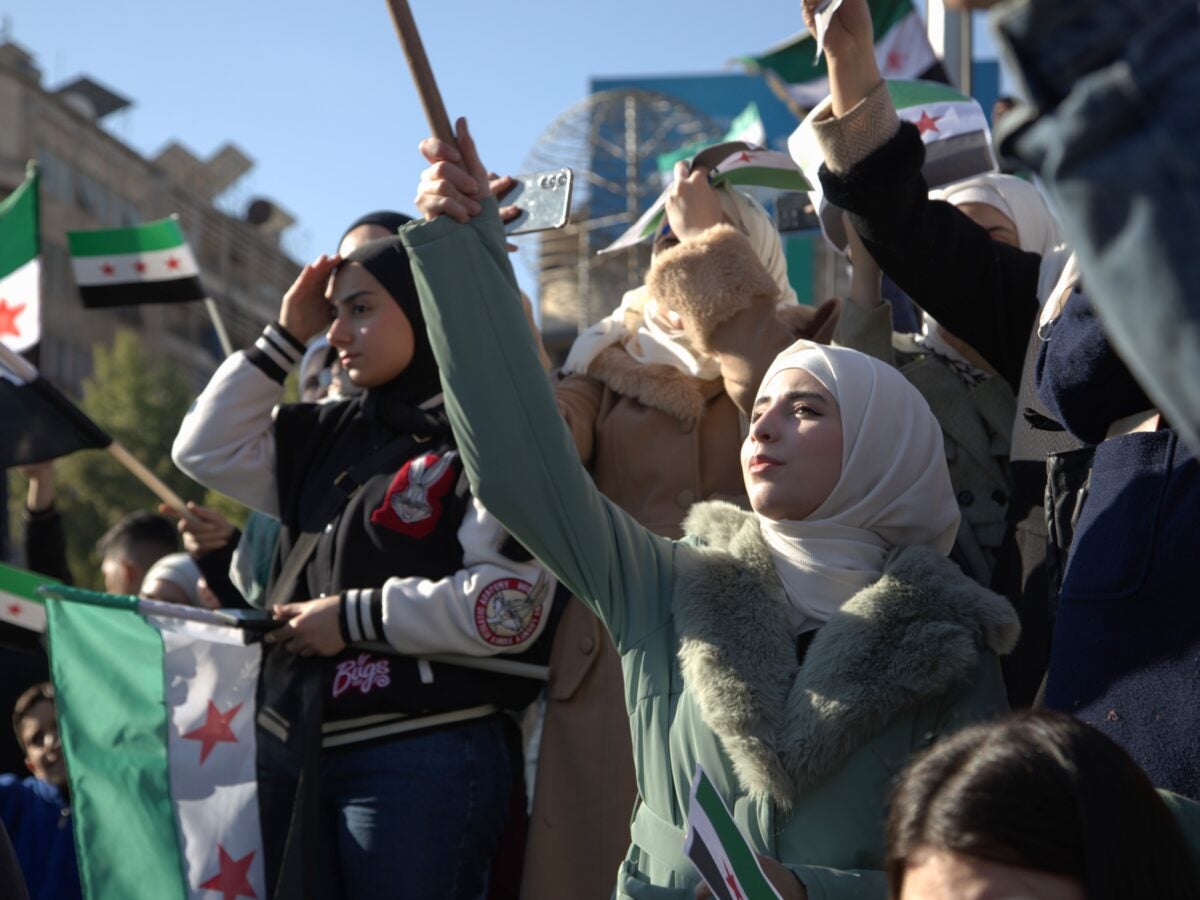Survivor-Centered Strategies to Combat Conflict-Related Sexual Violence

Sexual violence remains a pervasively overlooked and under-reported crime even during peacetime. But in conflict settings, the barriers to reporting and receiving justice and accountability only multiply. An estimated 80 percent of these cases go unreported, fueled by stigma and socio-cultural attitudes, as well as under-resourced systems and mechanisms for accountability—made worse by the US foreign aid freeze.
From Ukraine to Haiti to Sudan to Afghanistan and too many other places, targeted acts of sexual violence such as rape, forced pregnancy and sexual exploitation grow worse by the day, perpetrators are rarely held accountable, and there’s little justice for survivors.
The Georgetown Institute for Women, Peace and Security (GIWPS) convened experts working on behalf of survivors in Ukraine, Kosovo, Bosnia-Herzegovina, and Colombia to draw from their experiences and discuss lessons learned. The discussion also marked the launch of a GIWPS report on justice and accountability for conflict-related sexual violence (CRSV), which was informed by women who have worked at great lengths to achieve justice for survivors.
Lesson from Ukraine: creating a mechanism for reparations during ongoing conflict
Incidents of CRSV have been documented since Russia’s annexation of Crimea and the invasion of Donbas in 2014 and have continued since the full-scale war of aggression against Ukraine in 2022.
Last year, Ukraine set a global precedent and became the first country to create a mechanism for reparations during ongoing war.
“We are not these suffering and silent victims, we are fighting,” said Alisa Kovalenko, a member of SEMA, the Global Network for Victims and Survivors of Sexual Violence in Wartime Ukraine Network, and a filmmaker who traveled to Donbas in April 2014 and endured sexual violence by the Russian military. In reporting the assault, Kovalenko contributed to the push to create a legal structure that would ensure survivors receive immediate compensation to help cover financial, physical, and psychological support.
“Your testimony is also your weapon against perpetrators,” said Kovalenko, who has worked closely with local communities in the occupied territories for whom CRSV and how to report it is “not so obvious.”
Combatants in armed conflicts use sexual violence as a weapon of war—and the shame, stigma, and silence that often follow compound the trauma.
Facilitating conversations about what justice can look like and placing these crimes within the broader contexts of crimes against war and humanity can help demonstrate why every survivor’s testimony matters.
Lesson from Kosovo: providing comprehensive and continuous services to survivors
The Kosovo war, which ended in 1999, created thousands of survivors of systematic sexual violence and abuse. Civil society organizations have played a critical role in bridging gaps in short and long-term support services.
Feride Rushiti has spent two decades securing access to healthcare and justice for survivors—and in February was nominated for the 2025 Nobel Peace Prize. As the founder and executive director of Kosova Rehabilitation Center for Torture Victims, her advocacy helped make possible the government’s landmark decision to fund pensions for the survivors of wartime sexual violence. She also works with medical and paramedical professionals to train them on how to identify the signs of CRSV in a trauma-informed approach.
Rushiti emphasizes that survivors need long term and continuous services: “just one period of time is not enough.” And each survivor needs tailored support to reflect their unique experience. “It’s about creating spaces where survival feels safe and supportive,” she said.
She also pointed to the national campaigns—“Hear My Voice” in 2012 and “Be My Voice” in 2018—as examples of ways to reduce stigma and promote community-wide empathy and dignity for survivors.
Lesson from Bosnia: centering survivors in criminal proceedings
Though often cited as an example to be followed, Bosnia’s response to a staggering toll of CRSV is still viewed by many survivors as “too little, too late.” The four-year-long war included the targeted and systematic use of rape and sexual violence against more than 20,000 civilians — including people of all ages, genders, and sexual orientations — as part of a larger campaign of genocide. Women in particular faced extensive sexual violence.
A major breakthrough occurred in 2015, two decades after the end of the war, when a CRSV survivor was awarded compensation in criminal proceedings. It became a more common practice after that, and “slowly a change in atmosphere could be felt from giving special attention to survivor needs and the harm they have suffered,” said Adrijana Hanušić Bećirović, a Bosnian human rights activist and lawyer who represents victims of war crimes.
However, Bećirović said that delays and other shortfalls in the process have led victims to be increasingly reluctant to testify.
“Survivors have been asked countless times to tell their stories only to have their expectations repeatedly raised and then disappointed,” she said. “The prison sentences must be proportional to the severity of the crime committed and the harm caused, which, all too often, is not the case for CRSV crimes.”
Official legal recognition of CRSV survivors, including children born of wartime rape, has also brought symbolic recognition and satisfaction to survivors and their families, as well as opportunities for reparation.
Lesson from Colombia: respectfully documenting survivors’ testimony in real time
CRSV was perpetrated by state, paramilitary, and rebel forces during the decades-long armed conflict in Colombia. Colombian survivors of CRSV played an instrumental role in influencing the 2012-2016 peace negotiations to prohibit amnesty for these crimes, and the final agreement is recognized around the world for being gender sensitive.
María Susana Peralta Ramón, a lawyer with the Special Jurisdiction for Peace, shared that one of the key lessons from the peace process is to coordinate efforts across sectors by training and working closely with practitioners to document and facilitate testimony in a humanized and compassionate way. This means, for example, working with doctors on how to identify signs of CRSV and lawyers to ensure evidence fits up-to-date legal standards.
“You have to strengthen both grassroots organizations and survivors to gather information and train professionals who can link that information and keep it up to date in national and international legal spaces because you don’t know what forms of transitional justice will be used in your country,” she said.
These decisions shape post-conflict reconstruction and long-term recovery for those directly impacted as well as family, communities and nations.
Read the key policy recommendations, and the full GIWPS report: Pathways to Justice and Accountability for Conflict-Related Sexual Violence: Lessons Learned and Policy Recommendations from the Frontlines
Explore More

Guerras y conflictos tienen en jaque los derechos de las mujeres en…

One Year After the Transition: Syrian Women Reflect on a Fragile Opening…
One year after the fall of the Assad regime, the Georgetown Institute…

The Future of Women, Peace and Security Belongs to America’s Allies
For international partners sustaining the global WPS agenda amid shifting U.S. priorities…